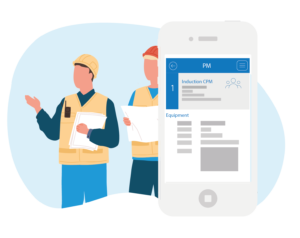Is Your Property a “Sick Building?”
Are your tenants constantly dry coughing, dizzy, or complaining of headaches? Is there a specific conference room or area that always causes a scratchy throat? Although most people will fall ill at some point in their lives and need to take a sick day, if you notice these symptoms are occuring frequently, your clients may have a case of “Sick Building Syndrome” (SBS). SBS refers to a situation where property occupants have a variety of consistent symptoms that appear to be related to time spent in the building, but no specific disease can be identified. These types of complaints are more common in newer, energy-efficient locations where windows are sealed shut and fresh air is scarce. In fact, the EPA estimates that one out of four newly built/newly renovated properties will develop a case of SBS!
 Although scientists are not quite sure what causes SBS, theories range from not having enough fresh air in the workplace to inhaling an increased amount of airborne chemical particles. Still others believe SBS is solely job related and is triggered by too much stress.
Although scientists are not quite sure what causes SBS, theories range from not having enough fresh air in the workplace to inhaling an increased amount of airborne chemical particles. Still others believe SBS is solely job related and is triggered by too much stress.
So how can a property manager do his or her part to prevent SBS? The EPA has several suggestions:
- Don’t block air vents or grilles – proper circulation can absorb some of the chemical particulate.
- Ask tenants to smoke outside and away from any fresh air intake ducts.
- Take care of any office plants – over-watered plants can have mold, while dusty, dying plants do nothing to clean the air at the property.
- Empty the trash can punctually to prevent odors and biological contamination.
- Store food properly – Keep perishable food in the refrigerator, and clean the refrigerator out frequently to prevent odors and mold.
- Keep the kitchen clean – dirty kitchens are a magnet for ants, cockroaches, and other pests.
Do you have any other suggestions to help prevent SBS? Share them in the comments section!

Affordable Housing Asset Manager Insights: Maximize Portfolio Performance by Supporting Housing Operators
From rising operational costs to increased demand for flexibility and technology, asset managers are navigating unique challenges to support property management teams while ensuring portfolio health and resilience. Recent MRI research delves into the…

